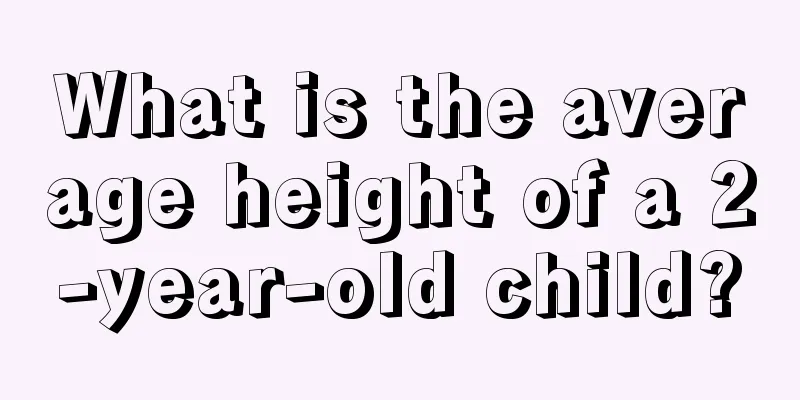Reasons why babies refuse to drink milk

|
Newborns mainly rely on drinking milk to supplement their body nutrition, but in daily life, babies often show symptoms of not wanting to eat milk. I believe many mothers have encountered this problem, which makes many mothers worried. So what are the reasons why babies don’t drink milk? Only by understanding the causes of the symptoms can we take effective measures. I hope this can help everyone. Milk aversion period: The milk aversion period of infants usually occurs at 3-6 months. Since the cause is still unknown, milk aversion is common. Parents are requested to pay special attention to the baby's eating habits to avoid poor growth and development. If the baby's aversion to milk is so severe that it affects his health, you can ask the doctor to prescribe medication to help the baby's gastrointestinal motility and increase appetite. Bloating: In addition to the fact that dairy products are prone to causing bloating, bloating may also come from the process of drinking milk. Due to a large bottle hole or incorrect posture, the baby inhales too much air, causing the baby to feel uncomfortable with bloating. The baby's milk aversion symptoms can be improved through massage or blocking the causes of bloating. Acquired diseases: Sometimes a baby's loss of appetite is caused by illness, such as a cold, gastroenteritis, or the baby has an allergic constitution, which may affect his appetite. This condition will gradually improve as the disease improves. Just pay attention to the principle of light diet during the illness. Congenital diseases: Some congenital diseases such as heart disease, thalassemia, etc. may cause the baby to have poor appetite. Constipation: Generally speaking, breastfed babies rarely suffer from constipation and poor appetite, but babies are more likely to become constipated when changing milk products, especially since formula milk contains iron, which makes constipation more likely to occur. Nursing experts recommend that changing milk products should be gradual. The initial ratio can be adjusted from 1/3. If the baby has no allergic reaction or constipation, the ratio of the new milk powder can be gradually increased. Psychological factors: Sometimes the reason why babies dislike breastfeeding is due to psychological factors, such as irregular eating times, mothers using beatings and scolding to urge them to eat... and other situations may make babies reject breastfeeding. The above reasons are the main reasons why babies don’t drink milk. If mothers find that their babies have the above symptoms, they must immediately take their babies to the hospital for relevant examinations. It is also recommended that mothers give their babies more care and encouragement. When the baby shows symptoms of refusing to drink milk, mothers must be patient and can also give the baby appropriate vitamin supplements. |
<<: Sharing of baby's development indicators at the age of two
>>: Amblyopia training methods for children
Recommend
What to do if your baby has jaundice
Jaundice is the most common symptom among newborn...
What should I do if my child keeps complaining about eye pain?
Children's eyes are watery, especially clear ...
How to effectively correct children’s stuttering?
Nowadays, many children have stuttering symptoms ...
What should I do if a one-month-old baby has a fever?
Fever is common in children, and there are many c...
What to do if your baby becomes constipated after adding complementary food
Children's bodies are relatively fragile, so ...
What are the early symptoms of cerebral palsy in infants and young children?
Every child is called the flower of the motherlan...
How to deal with a three-year-old child's face red spot
Many new mothers will never forget the moment the...
How does acrodermatitis develop in children?
If a child suddenly develops redness and swelling...
What medicine should children take when they have a fever and vomit?
As we all know, children's resistance is rela...
Treatment of stomatitis in infants
Babies are too young and have relatively poor imm...
How to treat skin allergies in children?
Pediatric skin allergies not only make children f...
Causes of moderate anemia in infants and young children
Most of the anemia in babies is related to the un...
What is the condition and treatment of pityriasis simplex in babies?
Here we will introduce the condition and treatmen...
Does a fake pacifier have any effect on the baby?
A fake pacifier is actually what we often call a ...
Diet for children with intussusception
Intussusception in children is a relatively commo...









